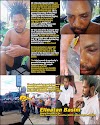Sunday Bulletin Online | Ialibu, Southern Highlands Province
DEEP within the heart of Ialibu District lies the ancient Siwi-Utame rainforest — a sacred and life-sustaining ecosystem that has nurtured generations of Papua New Guineans.
Today, that forest is under siege. Chainsaws scream, portable sawmills churn, and century-old trees fall one after another. What was once a sanctuary is now a battleground.
Unregulated logging is threatening not only the natural heritage of the Siwi and Utame people but the very essence of their identity.
Former Ialibu-Pangia MP and Paramount Chief Roy Yaki delivered a harrowing first-hand account of the devastation: “As Kili and I flew over the Siwi and Utame peaks escorting the late Warea Paita’s coffin, I was devastated by the sight. It’s not logging — it’s war on the environment. Total clearance. There is a madman destroying our very existence. We must rise up and stop this madness.”
Chief Yaki, a lifelong advocate for environmental protection, has taken bold and painful steps — even shutting down illegal sawmills operated by his own relatives. He successfully obtained a District Court order to stop logging past the Yago River on the Siwi side. But enforcement has failed.
That court order is now being ignored, and the vulnerable Utame forest, lacking similar legal protection, is being rapidly destroyed.
“Under the Environment Protection Act of 1972 and Wildlife Management Area Rules of 1977, all of SiwiUtame is a protected area,” he said. “But no one is brave enough to enforce it.”
His activism isn’t limited to the courtroom. Chief Yaki is known to rescue wild animals and orchids from roadside markets — not to keep, but to return them to the forest.
“These are not just animals or plants. They are our ecosystem, our culture, and our future.”
Nobert Kandi, a respected member of the Lawagrepa tribe, reinforced the legal standing of the forest: “A court order is already in place. Any legitimate descendant of our ancestor, Lombo, has the right to enforce it. A permanent restraining order can also be pursued to protect the entire SiwiUtame area.”
He urged practical, immediate action: educate family and clans on the risks and illegality of logging; reintroduce forest watchers — trained locals who monitor and report illegal activity; and report offenders to authorities for prosecution.
“If we don’t act now, the forest will be lost forever — along with species that may never return.”
Another community leader, Ita Kuna, emphasized that most of the next generation will grow up in villages — fully reliant on the land.
“For our children and grandchildren, the forest is everything — food, shelter, medicine, and identity.”
Kuna advocates for sustainable conservation through carbon trading, where preserving rainforests earns income via global carbon credit markets.
“The forest should be seen as a national asset — not a resource to exploit and abandon. It holds cultural, economic, and climate value.”
Speaking on behalf of the Utame people, Teejay Pakawi reminded the nation that past warnings were ignored — and the consequences are now being felt.
“We said nothing before. Now we must speak.”
Pakawi outlined the impacts already visible on the ground: vanishing wildlife; polluted, muddy rivers; food and water shortages; stronger winds and hotter weather; and land disputes and broken promises from loggers.
“Our land is our life. To protect it is to protect our future.”
The Siwi-Utame communities now face a defining moment. Will they remain silent and allow the destruction to continue — or will they stand up to protect their forest, their heritage, and their children’s future?
Chief Yaki leaves no room for doubt: “Do you want to endorse this madness, or will you protect your children’s future?”
As the roar of chainsaws grows louder and the green canopy thins, the call to action grows more urgent.
Siwi-Utame must not become another cautionary tale. It must be a story of courage, community, and conservation. Let us rise — before it is too late.






0 Comments